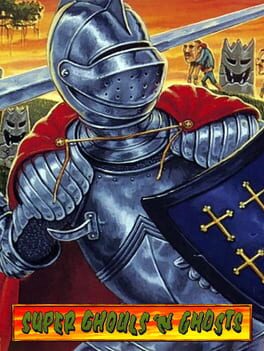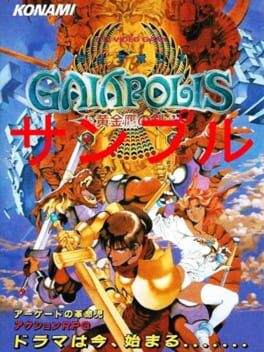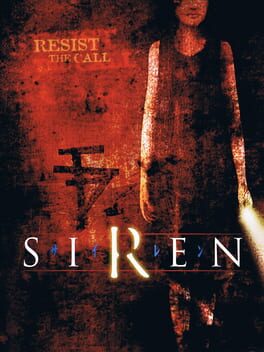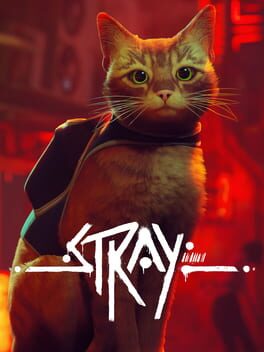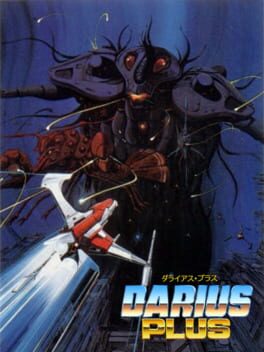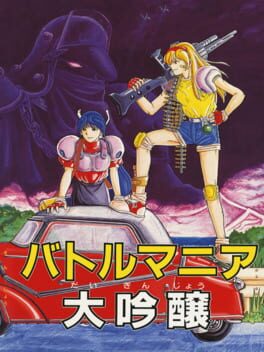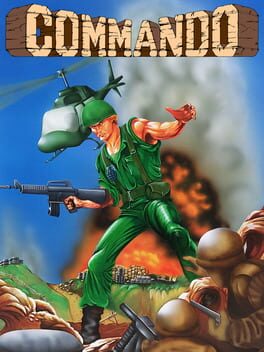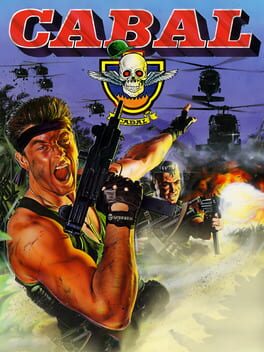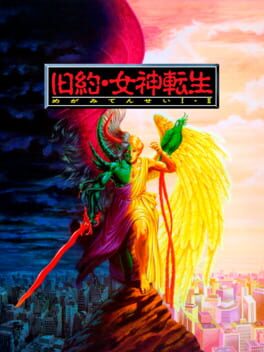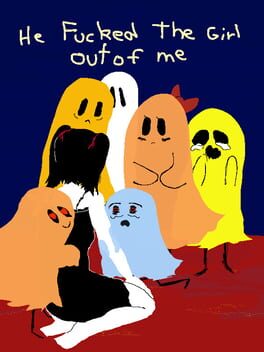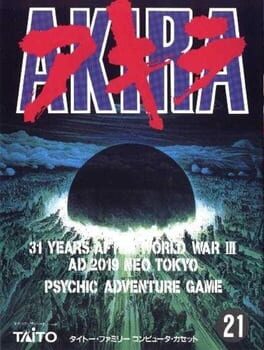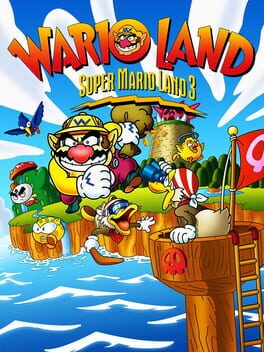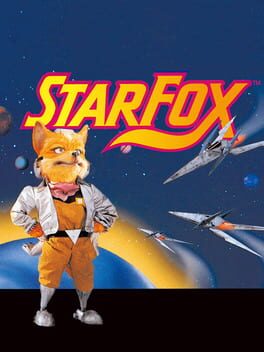Blowing_Wind
2017
This review contains spoilers
A cat that needs to survive a hostile world that visually reminded me of something like Out of this World or other cinematic platformers from the 90s, but a very different one fundamentally to them, it's a world that was once obsessed with trascendence and technological advancement to the point the population destroyed itself with a robot that after everything was no more, still fed his ego with new creations to the point he lost his mind, even if he never means to have caused harm.
The cat can't be preocupied with his ego though, throughout his extremely endangered existance, he gets tired of repeating neverending cycles of hunting, eating and sleeping in search for his family, to the point he reaches for the dephts of the earth in his neverending quest with no results but he does find a place deep below to give a higher meaning to his now meaningless life after never finding his loved ones. It's left for the player to interpret what the metaphysical ending represents for the cat, one that reminds me of 2001: a Space Oddysey.
One dialogue I got with the robot that reads pearls says the fluid the cat sinks into is the sedimentation of life forms to the core of the earth instead of actual magma or minerals like you would assume. If those are the sediments of organisms, to me, he found the spirits of his ancestors. He finally found a sort of family after all that hard work, even if he had to leave the world behind. It was a little creature apparently following its insticts the one who got what the gods of technology wanted, while them at the end of the day, will be the ones still on the place they were abandoned in, the ones repeating the things they were programmed with, no reason to do so anymore. Some of them may even still nostalgically lament what they did lose with the world in such a state, but it's the cat what allowed them to move forward.
The cat can't be preocupied with his ego though, throughout his extremely endangered existance, he gets tired of repeating neverending cycles of hunting, eating and sleeping in search for his family, to the point he reaches for the dephts of the earth in his neverending quest with no results but he does find a place deep below to give a higher meaning to his now meaningless life after never finding his loved ones. It's left for the player to interpret what the metaphysical ending represents for the cat, one that reminds me of 2001: a Space Oddysey.
One dialogue I got with the robot that reads pearls says the fluid the cat sinks into is the sedimentation of life forms to the core of the earth instead of actual magma or minerals like you would assume. If those are the sediments of organisms, to me, he found the spirits of his ancestors. He finally found a sort of family after all that hard work, even if he had to leave the world behind. It was a little creature apparently following its insticts the one who got what the gods of technology wanted, while them at the end of the day, will be the ones still on the place they were abandoned in, the ones repeating the things they were programmed with, no reason to do so anymore. Some of them may even still nostalgically lament what they did lose with the world in such a state, but it's the cat what allowed them to move forward.
All three Ghost and Goblins games I've finished have tightly designed set pieces even though the difficulty is through the roof, which lends it a bit of personality and diversity which wouldn't be found in traditionally segmented levels. However they all suffer the same problem: you have to beat them twice to reach the ending. These old games and their need of unnecesary padding, my god.
Also give me back the multidirectional aiming of the previous entry instead of the double jump feature, thank you very much.
Also give me back the multidirectional aiming of the previous entry instead of the double jump feature, thank you very much.
1993
This game feels like one of those vertical screen Tik Tok edits of epic movies where you appreciate the dedication to make something look cool but the format ends up making it look awful. It's even worse here because the screen is so cramped with huge enemies and there's barely any room to see them (and I'm being reserved about the clunky controls with the fact that when you run the already narrow screen doesn't scroll)
2003
The kind of experimental game high budget companies would only attempt in the late 90s to early 2000s. The title is arranged like a file investigation regarding the whereabouts of more than 15 characters over the span of three days, 10 of which you control through the adventure. Most of them are characterized with enough thematic depht to make them memorable, even if there's not a lot of development and most of their backstory is found out via background elements (the TV reporter who became older and lost her job, the medic who became emotionally distant to his brother because of growing up in another family, the anthropology teacher who lost his parents on a landslide when he was a kid...), which is what makes the game so compelling to play, to discover the story of this village.
The thing is that what one character does at his point of the story has repercussions for someone else, and this means that for the true ending, there's a lot of cryptic things these characters (because the player saw later events and replayed the earlier levels) have to do which would require having telekhinesis to know it's needed to be done and amidst all the horrific things happening no one in their right mind would do (like going to open the bathroom of a hospital on another floor despite not having anything to do there just for another character the one you are controlling doesn't even know for that one to enter it later) or if it could have been done because out of curiosity (like grabbing a cassette) it ends up being a convenient solution for another character (fighting the character that grabbed it means you can grab what she was carrying and using the cassette's tape as a string to pull down something to distract an enemy). It becomes quite ridiculous but given the fact the game takes place in another dimension between earth and hell, there's a level of macabre surrealism at work with things lining up perfectly for everyone or else everything goes wrong, even if it's still kind of contrived.
And yes, the atmosphere is excellent. No wonder this is the same director as Silent Hill 1. It's still kind of clunky in terms of current moment dialogue (not helped by the weird delivery in the english dub and the british accents) but there's so much attention to detail in how it builds up the lore that it ends up being very fascinating.
Thanks Gsar for recommending the game. The sightjacking mechanic that lets you see what your enemy is seeing and how inventively it's used here left this piece of crap obsolete
The thing is that what one character does at his point of the story has repercussions for someone else, and this means that for the true ending, there's a lot of cryptic things these characters (because the player saw later events and replayed the earlier levels) have to do which would require having telekhinesis to know it's needed to be done and amidst all the horrific things happening no one in their right mind would do (like going to open the bathroom of a hospital on another floor despite not having anything to do there just for another character the one you are controlling doesn't even know for that one to enter it later) or if it could have been done because out of curiosity (like grabbing a cassette) it ends up being a convenient solution for another character (fighting the character that grabbed it means you can grab what she was carrying and using the cassette's tape as a string to pull down something to distract an enemy). It becomes quite ridiculous but given the fact the game takes place in another dimension between earth and hell, there's a level of macabre surrealism at work with things lining up perfectly for everyone or else everything goes wrong, even if it's still kind of contrived.
And yes, the atmosphere is excellent. No wonder this is the same director as Silent Hill 1. It's still kind of clunky in terms of current moment dialogue (not helped by the weird delivery in the english dub and the british accents) but there's so much attention to detail in how it builds up the lore that it ends up being very fascinating.
Thanks Gsar for recommending the game. The sightjacking mechanic that lets you see what your enemy is seeing and how inventively it's used here left this piece of crap obsolete
2022
This review contains spoilers
When I was playing Rain Town, my friend Josep told me he was also playing a game where a cat loses his family and has to trek through a post apocalyptic urban world where its inhabitants are long gone and the only characthers with dialogue the animal can interact with are robots.
Yeah... I would stick with Rain World if I had to choose between the two. Despite the beautiful decaying atmosphere just like in that game, this one feels not only presentation wise but also gameplay wise a bit too familiar and typical.
There's so much emphasis on the justified parkouring (because of the animal you play as) but it feels extremely limited and often frustrating to play, it's just going around the extremely heavy on details set-pieces until a on-screen prompt pops up indicating you can jump over some place, despite some ledges looking like they could be jumped into and aumenting the obssesively scripted feel of the movement and taking away freedom from the player to tackle the platforming (I specially feel this after playing Rain World xd). The puzzles are really basic too, but I'm not just complaining for them being easy, it sometimes borders on the line of the robot characthers being idiotic for never coming across them. The Marty McFly robot seriously lived in his house for such a long time and never took notice of that obvious fake wall or the code keyboard behind a framed picture?
The presentation of the story and lore also feels like a typical AAA game sometimes (despite the fact it's distributed by Annapurna). The helper robot having convenient amnesia that makes his memory come back with details that the script feels are necessary for the moment, with the weird twist of its AI being the uploaded mind of the scientist he thought he was working for feeling unearned and doesn't provoke any food for thought other than maybe the scientist was originally so upset at humans (like it's revealed at the end of the game) that maybe he didn't want to be reminded of his true nature. It's nice that the secrets in the game involve uncovering parts of his memories even if the narrative forces the most important things in the moments it finds they are needed. His sacrifice at the end is a nice moment, too, because he accepts his demise of being the last remaining human and puts all the faith in the creations of mankind to continue the legacy.
However, this serves as another gripe I have with the story and lore: it's another of those dystopian stories where the humans were bad, capitalism is directly addresed and criticized, and the whole theme it's trying to analyze is a bit too corney and obvious for my taste. I know, it's a very interesting thing that the robot society is trying to imitate the human society of ages past due to their fascination and despite the fact some of the things they imitate don't make sense to them and that's why they fall into the same errors (it also justifies the previous pop culture references I aluded to, because they want to understand humanity) but this only charactherizes almost every robot under the same charactheristic, some of them being more or less frightful or wanting to go to the exterior.
For real though, despite the fact there are so many robots, they are pretty forgettable characthers. Tell me something interesting from them apart from the amnesiac helper robot. Using Rain World as an example because I played it recently, it only had two speaking NPCs in the whole game and despite one of them also being the one having amnesia that fills in the lore, the game uses that for the themes of letting go of the ego for trascendance because there's tragically no way for the characther to have her memories back. That's an ingenious use of a very exploited trope, I wish there was something similar here. It's ironic to me that the most interesting characthers were the cleaning robots at the Control Station, because as some tidbit of lore informed the player, they behave with no personality because they never had a chance to interact with culture.
Despite my gripes with the game, I still enjoyed the worldbuilding, ambientation and the stories from the scientist's past, but it's not that groundbreaking of a game sadly (though it's pretty funny when the robots treat the cat like a capable special agent). The ending leaves things open for no reason too, I joked to Josep that it would be really funny if the ending was metaphysical again just like Rain World, but it's very anticlimactic even if the sight of the shelter opening the ceiling is majestic.
Yeah... I would stick with Rain World if I had to choose between the two. Despite the beautiful decaying atmosphere just like in that game, this one feels not only presentation wise but also gameplay wise a bit too familiar and typical.
There's so much emphasis on the justified parkouring (because of the animal you play as) but it feels extremely limited and often frustrating to play, it's just going around the extremely heavy on details set-pieces until a on-screen prompt pops up indicating you can jump over some place, despite some ledges looking like they could be jumped into and aumenting the obssesively scripted feel of the movement and taking away freedom from the player to tackle the platforming (I specially feel this after playing Rain World xd). The puzzles are really basic too, but I'm not just complaining for them being easy, it sometimes borders on the line of the robot characthers being idiotic for never coming across them. The Marty McFly robot seriously lived in his house for such a long time and never took notice of that obvious fake wall or the code keyboard behind a framed picture?
The presentation of the story and lore also feels like a typical AAA game sometimes (despite the fact it's distributed by Annapurna). The helper robot having convenient amnesia that makes his memory come back with details that the script feels are necessary for the moment, with the weird twist of its AI being the uploaded mind of the scientist he thought he was working for feeling unearned and doesn't provoke any food for thought other than maybe the scientist was originally so upset at humans (like it's revealed at the end of the game) that maybe he didn't want to be reminded of his true nature. It's nice that the secrets in the game involve uncovering parts of his memories even if the narrative forces the most important things in the moments it finds they are needed. His sacrifice at the end is a nice moment, too, because he accepts his demise of being the last remaining human and puts all the faith in the creations of mankind to continue the legacy.
However, this serves as another gripe I have with the story and lore: it's another of those dystopian stories where the humans were bad, capitalism is directly addresed and criticized, and the whole theme it's trying to analyze is a bit too corney and obvious for my taste. I know, it's a very interesting thing that the robot society is trying to imitate the human society of ages past due to their fascination and despite the fact some of the things they imitate don't make sense to them and that's why they fall into the same errors (it also justifies the previous pop culture references I aluded to, because they want to understand humanity) but this only charactherizes almost every robot under the same charactheristic, some of them being more or less frightful or wanting to go to the exterior.
For real though, despite the fact there are so many robots, they are pretty forgettable characthers. Tell me something interesting from them apart from the amnesiac helper robot. Using Rain World as an example because I played it recently, it only had two speaking NPCs in the whole game and despite one of them also being the one having amnesia that fills in the lore, the game uses that for the themes of letting go of the ego for trascendance because there's tragically no way for the characther to have her memories back. That's an ingenious use of a very exploited trope, I wish there was something similar here. It's ironic to me that the most interesting characthers were the cleaning robots at the Control Station, because as some tidbit of lore informed the player, they behave with no personality because they never had a chance to interact with culture.
Despite my gripes with the game, I still enjoyed the worldbuilding, ambientation and the stories from the scientist's past, but it's not that groundbreaking of a game sadly (though it's pretty funny when the robots treat the cat like a capable special agent). The ending leaves things open for no reason too, I joked to Josep that it would be really funny if the ending was metaphysical again just like Rain World, but it's very anticlimactic even if the sight of the shelter opening the ceiling is majestic.
1990
Merry Christmas everybody. I've chosen to beat this game I had pending for a very long time on this date because the bosses are mechanichal sea creatures in a giant scale (and experimental backgrounds that often look like they were painted on oil, I hoped the game had more personality other than this though).
Yes, it's on Easter Holidays that you shall not eat "red meat" but you can eat fish meat (in Argentina we even make a meal called "Filet de Merluza" which is the fish meat enveloped in breadcrumbs and toasted, it's freaking delicious, you should try it) but if Jesus was born on this day I don't think we should eat from his meat and drink from his blood on his birthday either 😂
Yes, it's on Easter Holidays that you shall not eat "red meat" but you can eat fish meat (in Argentina we even make a meal called "Filet de Merluza" which is the fish meat enveloped in breadcrumbs and toasted, it's freaking delicious, you should try it) but if Jesus was born on this day I don't think we should eat from his meat and drink from his blood on his birthday either 😂
In response to Cold_Confort's review [https://www.backloggd.com/u/Cold_Comfort/review/545006/]...
I've beaten a lot of other difficult shooters in my life (Image Fight and Super Star Soldier give me bad memories D:) but in all honestly I would replay this one because it's not a generic military shooter like 95% of this era nor is it a simple cute em up which has inventive designs and nothing else. This title just made me laugh a lot with the story beats and little details (the blue haired girl poking the body of one of the final bosses before it initiates battle, and the apartment that lets you transfer your weapon catching on flames in the last level 😂), it has a lot of charactherizations that is lacking in other games from this type (even the end credits have funny comments about the programmers): it has artistic merit even if it doesn't have a lot of "sportist" merit because of the difficulty design... and as such I consider it one of the best shmups I've ever played. Wish it didn't have an epileptic inducing background in the final boss though.
I've beaten a lot of other difficult shooters in my life (Image Fight and Super Star Soldier give me bad memories D:) but in all honestly I would replay this one because it's not a generic military shooter like 95% of this era nor is it a simple cute em up which has inventive designs and nothing else. This title just made me laugh a lot with the story beats and little details (the blue haired girl poking the body of one of the final bosses before it initiates battle, and the apartment that lets you transfer your weapon catching on flames in the last level 😂), it has a lot of charactherizations that is lacking in other games from this type (even the end credits have funny comments about the programmers): it has artistic merit even if it doesn't have a lot of "sportist" merit because of the difficulty design... and as such I consider it one of the best shmups I've ever played. Wish it didn't have an epileptic inducing background in the final boss though.
1985
Disappointed because there was no section of Schwarzenegger fighting a dude where someone was filming a porno. Oh wait, same name but not an adaptation of the movie.
No but really, this game is extremely clunky and beating the same four levels four times just with different enemy behavior is just there to mask the lack of content. There are literally fully programmed "normal" enemies that appear once in the game that I wish would have been there more instead of the annoying respawning vanilla soldiers as if this was SNK's Athena.
No but really, this game is extremely clunky and beating the same four levels four times just with different enemy behavior is just there to mask the lack of content. There are literally fully programmed "normal" enemies that appear once in the game that I wish would have been there more instead of the annoying respawning vanilla soldiers as if this was SNK's Athena.
1988
I had a version with the first four levels of this game in one of those old timey cell phones running on Java as a kid! Now that I played the game to the end, I had hoped it would end in a less anticlimatic note though (The second set of stages has a submarine in a swimming pool! Why not have something crazy like that as a final boss?)
Becomes repetitive really quickly despite the short duration but the scenery has plenty of (destroyable) detail for an 8 bit game and it's really nice to see the following level in the distance
Becomes repetitive really quickly despite the short duration but the scenery has plenty of (destroyable) detail for an 8 bit game and it's really nice to see the following level in the distance
People will point toward Final Fantasy II regarding hostile worlds and a very downbeat atmosphere talking about NES RPGs, but Megami Tensei I & II take the cake for me.
The first game takes place entirely in interiors, I know it's a dungeon crawler but it's the way it builds an entire megadungeon that takes around 30 hours to complete, with infrastructure design that makes a lot of sense (there is a sky city that can attatch itself to certain areas, and in those floors there is always a square shaped hole where the city would be located for example) and demonstrates a lot of attention to detail.
There's not a lot of thematic depht in the first game, but it's compensated by a nice level of personality as a first in a looooong franchise I still haven't touched apart from this one, the dialogue shows you are dealing with very opportunistic entities, and enticing a demon to join your party is appropiately uncomfortable and dynamic, even if after a while you notice repetition in the texts. Boss fights are an extreme uphill battle as you are on the edge of your seat because of how intensely difficult they are from early to mid game. My biggest complain with the game is that it becomes very "80's game criptic" at points and the enemies towards the end don't give you enough energy source ("magnetite") to feed your high level demons that deplete it fast, so you go around with them taking 1HP every step.
Megami Tensei II is an ambitious step forward, on the base of the previous game, the story is more detailed, kind of like a lesser version of the second half of Final Fantasy VI: a postapocalyptic world where people either gather around what they proclaim as divinities, desperate for protection; or your own human allies can get lost in their chase for who they were following, seeking for glory under their direction, even if they end up doing things that are not moral. You end up confronting God himself who lets the world rot without doing anything (it got quite edgy in that point) so that humanity can have a chance at rebuilding society again "through its own strenght", or, what's very interesting, you can follow god and live in his paradise even if all the other people who are still following other gods remain in the ruined place you came from. It's still told in a very superficial manner, where I expected things to get more focus regarding this idea of the concepts we dedicate ourselves into, but what it presents in the scope it does so for a 1990 NES game it must have been spectacular (a custom music chip for the cartridge even allowed for more complex output than regular NES games even)
This SNES remake of the first two games has included a new automap feature that I think it wasn't in the NES versions in this convenient manner, and even then however, this is a brutal game that doesn't let down. In the second title, there's an obligatory story moment where your arm gets torn off and must rush to an implant hospital with your main character unable to fight and bleeding his HP out. If Megami Tensei doesn't demonstrate that this world is not merciful with this story beat, I don't know what does it for you apart from Lisa the Painful
MT1: 5/10
MT2: 6/10
The first game takes place entirely in interiors, I know it's a dungeon crawler but it's the way it builds an entire megadungeon that takes around 30 hours to complete, with infrastructure design that makes a lot of sense (there is a sky city that can attatch itself to certain areas, and in those floors there is always a square shaped hole where the city would be located for example) and demonstrates a lot of attention to detail.
There's not a lot of thematic depht in the first game, but it's compensated by a nice level of personality as a first in a looooong franchise I still haven't touched apart from this one, the dialogue shows you are dealing with very opportunistic entities, and enticing a demon to join your party is appropiately uncomfortable and dynamic, even if after a while you notice repetition in the texts. Boss fights are an extreme uphill battle as you are on the edge of your seat because of how intensely difficult they are from early to mid game. My biggest complain with the game is that it becomes very "80's game criptic" at points and the enemies towards the end don't give you enough energy source ("magnetite") to feed your high level demons that deplete it fast, so you go around with them taking 1HP every step.
Megami Tensei II is an ambitious step forward, on the base of the previous game, the story is more detailed, kind of like a lesser version of the second half of Final Fantasy VI: a postapocalyptic world where people either gather around what they proclaim as divinities, desperate for protection; or your own human allies can get lost in their chase for who they were following, seeking for glory under their direction, even if they end up doing things that are not moral. You end up confronting God himself who lets the world rot without doing anything (it got quite edgy in that point) so that humanity can have a chance at rebuilding society again "through its own strenght", or, what's very interesting, you can follow god and live in his paradise even if all the other people who are still following other gods remain in the ruined place you came from. It's still told in a very superficial manner, where I expected things to get more focus regarding this idea of the concepts we dedicate ourselves into, but what it presents in the scope it does so for a 1990 NES game it must have been spectacular (a custom music chip for the cartridge even allowed for more complex output than regular NES games even)
This SNES remake of the first two games has included a new automap feature that I think it wasn't in the NES versions in this convenient manner, and even then however, this is a brutal game that doesn't let down. In the second title, there's an obligatory story moment where your arm gets torn off and must rush to an implant hospital with your main character unable to fight and bleeding his HP out. If Megami Tensei doesn't demonstrate that this world is not merciful with this story beat, I don't know what does it for you apart from Lisa the Painful
MT1: 5/10
MT2: 6/10
Extremely nihilistic to the point it starts to feel repetitive and too mean spirited to the own creator's self-indulgence in the portrayals of the protagonist's mental illness but it still manages to present itself in a very ingenious and didactical way while informing the player, with lots of introspective depht, of the characthers' worries around their loved ones and strangers, frequently feeling an emotional disconnect with themselves and those others to the point reciprocity has become a desfigured transaction and nothing more.
Thanks Fancyynancyy for bringing the game to my attention!
Thanks Fancyynancyy for bringing the game to my attention!
As my 600th played title here in Backloggd, I wanted to play something special for the first time as a twenty year old (and even ended up growing up to twenty one in the meantime). It seems that in the Internet a lot floats around about this game from 1998 having not aged well, but I won't be comparing it to newer games because not only I have played very few modern games like this to compare it to (though Dark Souls, one of my favourites, does grab a lot in play mechanics from this title) but because I think playability wise, it is a pretty well rounded and fun title, the presentation still uses some well polished cinematic techniques, Koji Kondo's soundtrack is superb (the option menu even allows to configure the audio to headsets, perfectly tailored to play on an emulator in PC or Android like in my case), and things like the tiny map if I were to compare it to Dark Souls for example still impresses me for how much they were able to get out of it. The general witty style in the Zelda games I've played is here too, parodying some ridiculous things in these fairytales, like marriage proposals out of nowhere; or even game mechanics, like the guy who allows you to break stuff he's supposed to be protecting because it relieves stress; or even just hilarious writing, like the two witch sisters who complain about the other's age while dying or the rock people chief who talks like Hulk Hogan, are still charming and hilarious (again, without having proper comparison to newer games who might have done it better). I have to make a special mention about the gravekeeper, who dies in the seven years Link went to the future but who ironically, despite being related to the dead, still has a lot of energy as a spirit and challenges the player to a race. That's just heartwarming as fuck.
Nope, my issues come from its pretentions as a work of art, and for this I even have three games in mind PRIOR to Ocarina of Time to compare that to. And I even will lower the score from a game in the series that came after it which borrows a lot from it, Oracle of Ages.
Time travel as a structure for your story (and most of all, gameplay) will instantly make me roll my eyes if it doesn't have the proper limitations to go against the large amount of freedom this mechanic introduces, allowing for time paradoxes the protagonist can conveniently invoke to help himself and other people with no negative consequences. Though again, there are moments where it makes fun of the concept, as here the one where you get the song of storms is easier to forgive as it fucks up the machinery of a townsfolk, even if that doesn't have any serious consequence in the rest of the story.
What is my grand issue with it? It's because of the way the game is trying so hard to tell an ambitious story about growing up, maturing and accepting the passage of time, where horrible things may happen and you will have to stand them. As Zelda disguised as Sheik says:
"The flow of time is always cruel... its speed seems different for each person, but no one can change it... A thing that does not change with time is a memory of younger days".
Well, the game does not adhere to this message it wants to tell, at all. For trying to tell a standard story about saving the world, the only "maturing" Link does in here is going out on an adventure and solving puzzles (while only growing up superficially, becoming an adult just in body), which is a standard JRPG trope. The battle against the dark Link reintroduced from Zelda II has Navi saying "conquer yourself" but the only thing you do is beat the crap out of it, it's not like Cecil in Final Fantasy 4 (exhibit number one from 1991) where to accept a new way of being, the puzzle is to wait for the toxic side of you to drain itself from its energy, as it embodies everything self destructive about you, even if doing so is going to take energy from yourself as well and you have to endure that.
As such, it also doesn't transmit anything meaningful for the player's own way of thinking due to the nature of going back and forth through time, he doesn't need to sacrifice anything important. Here's when I recall exhibit number two and three:
When taking the master sword, Link has to be absent in the world for seven years, the city of Hyrule becoming ruins, Zora's Domain freezing, Kokiri turning into a mess of invasive wildlife. He can revert a lot of this without going back in time, yes, but Ganondorf's presence is still taking its toll on people while they try to rebuild their previous way of life, and this is of course solved at some point by time travelling (the desert dungeon is the prime example). Wouldn't it be cheap if in a certain game where one of the main characters was in coma for a year, the world went to shit in the meantime but people are trying to rebuild society working hard while the presence of a demented villain kept everyone in tension called Final Fantasy 6 (1994) they could just travel back in time when all was better, grab whatever was necessary in the past when they could do the things they can't do anymore, and bring it to the current events to battle that threat? Time travelling prevents the characters, especially Zelda who underestimated Ganondorf when she was a kid, from finding a way out and coping with the consequences.
From the side of Link's "character development", I just need to look to at this series own Game Boy game, Link's Awakening (1993), one of my favourite videogames of all time, and what I was hoping this could replicate in terms of emotional investment as it was a title from the following generation.
The psychological elements from that game where Link finds a mostly idyllic place he could settle for, and could end up with an ideal, made up representation of Zelda, but ultimately has to give up this place in order to wake up to the real world because his duty is still being an adventurer and a hero, even if he could never be the romantic interest of the royalty in his reality, absolutely embodies the theme of sacrifice this title would lead to if, for example, even if going back to the past, it was to the moment horrible things started to happen to the kingdom (after all, most puzzles regarding time travel only needs Link to use his unique abilities as a child, like being able to fit through gaps he can't with the body of an adult, not something regarding other characters' locations), so there is no escaping the terrible reality he ultimately would have to face once he took the Master Sword.
I even thought the game would actually grow some balls at the ending: just like the owl character from Link's Awakening (who also comes back here but as a more bland character who advises without deceit) keeping things secret from the protagonist to manipulate him, I thought that to "seal the doors of time", Zelda would have been hiding Link that he would have had to stay in the future in order to leave the Master Sword there, and never go back to when he was a child, sacrificing the rest of his childhood and the experience of growing up. But nah, not only does he go back in time and deposit the sword there, but he went to the moment before he even met Zelda. So... What was the point of the adventure? Ganondorf will try to grab the stuff and make use of the sword because he is only defeated in the future, not in the present, he will have it even easier this time as unlike before he will have access to the sword because Link doesn't have it in his possession! AGH THIS TIME TRAVEL STORY DOESN'T MAKE SENSE!
So, all in all, the game as a work of art ends up being pretentious and contradictory, and if all those philosophical aspects are to be ignored, you would just end up with a standard adventure story with a generic JRPG plot, generic villain, generic protagonists who not only do not grow but childishly get what they want, and a time travel set up which ends up extremely convoluted, even if it has tons of charisma and personality. I was thinking maybe Majora's Mask would be what Link's Awakening was to Link to the Past (grabbing the gameplay mechanics but this time centering on an artistically compelling story), but I've seen that game also uses Time Travel too, so I'm not touching that in a long time (as I've heard that unlike here, the gameplay in Majora is less refined and wouldn't be at least fun like this title was)
Nope, my issues come from its pretentions as a work of art, and for this I even have three games in mind PRIOR to Ocarina of Time to compare that to. And I even will lower the score from a game in the series that came after it which borrows a lot from it, Oracle of Ages.
Time travel as a structure for your story (and most of all, gameplay) will instantly make me roll my eyes if it doesn't have the proper limitations to go against the large amount of freedom this mechanic introduces, allowing for time paradoxes the protagonist can conveniently invoke to help himself and other people with no negative consequences. Though again, there are moments where it makes fun of the concept, as here the one where you get the song of storms is easier to forgive as it fucks up the machinery of a townsfolk, even if that doesn't have any serious consequence in the rest of the story.
What is my grand issue with it? It's because of the way the game is trying so hard to tell an ambitious story about growing up, maturing and accepting the passage of time, where horrible things may happen and you will have to stand them. As Zelda disguised as Sheik says:
"The flow of time is always cruel... its speed seems different for each person, but no one can change it... A thing that does not change with time is a memory of younger days".
Well, the game does not adhere to this message it wants to tell, at all. For trying to tell a standard story about saving the world, the only "maturing" Link does in here is going out on an adventure and solving puzzles (while only growing up superficially, becoming an adult just in body), which is a standard JRPG trope. The battle against the dark Link reintroduced from Zelda II has Navi saying "conquer yourself" but the only thing you do is beat the crap out of it, it's not like Cecil in Final Fantasy 4 (exhibit number one from 1991) where to accept a new way of being, the puzzle is to wait for the toxic side of you to drain itself from its energy, as it embodies everything self destructive about you, even if doing so is going to take energy from yourself as well and you have to endure that.
As such, it also doesn't transmit anything meaningful for the player's own way of thinking due to the nature of going back and forth through time, he doesn't need to sacrifice anything important. Here's when I recall exhibit number two and three:
When taking the master sword, Link has to be absent in the world for seven years, the city of Hyrule becoming ruins, Zora's Domain freezing, Kokiri turning into a mess of invasive wildlife. He can revert a lot of this without going back in time, yes, but Ganondorf's presence is still taking its toll on people while they try to rebuild their previous way of life, and this is of course solved at some point by time travelling (the desert dungeon is the prime example). Wouldn't it be cheap if in a certain game where one of the main characters was in coma for a year, the world went to shit in the meantime but people are trying to rebuild society working hard while the presence of a demented villain kept everyone in tension called Final Fantasy 6 (1994) they could just travel back in time when all was better, grab whatever was necessary in the past when they could do the things they can't do anymore, and bring it to the current events to battle that threat? Time travelling prevents the characters, especially Zelda who underestimated Ganondorf when she was a kid, from finding a way out and coping with the consequences.
From the side of Link's "character development", I just need to look to at this series own Game Boy game, Link's Awakening (1993), one of my favourite videogames of all time, and what I was hoping this could replicate in terms of emotional investment as it was a title from the following generation.
The psychological elements from that game where Link finds a mostly idyllic place he could settle for, and could end up with an ideal, made up representation of Zelda, but ultimately has to give up this place in order to wake up to the real world because his duty is still being an adventurer and a hero, even if he could never be the romantic interest of the royalty in his reality, absolutely embodies the theme of sacrifice this title would lead to if, for example, even if going back to the past, it was to the moment horrible things started to happen to the kingdom (after all, most puzzles regarding time travel only needs Link to use his unique abilities as a child, like being able to fit through gaps he can't with the body of an adult, not something regarding other characters' locations), so there is no escaping the terrible reality he ultimately would have to face once he took the Master Sword.
I even thought the game would actually grow some balls at the ending: just like the owl character from Link's Awakening (who also comes back here but as a more bland character who advises without deceit) keeping things secret from the protagonist to manipulate him, I thought that to "seal the doors of time", Zelda would have been hiding Link that he would have had to stay in the future in order to leave the Master Sword there, and never go back to when he was a child, sacrificing the rest of his childhood and the experience of growing up. But nah, not only does he go back in time and deposit the sword there, but he went to the moment before he even met Zelda. So... What was the point of the adventure? Ganondorf will try to grab the stuff and make use of the sword because he is only defeated in the future, not in the present, he will have it even easier this time as unlike before he will have access to the sword because Link doesn't have it in his possession! AGH THIS TIME TRAVEL STORY DOESN'T MAKE SENSE!
So, all in all, the game as a work of art ends up being pretentious and contradictory, and if all those philosophical aspects are to be ignored, you would just end up with a standard adventure story with a generic JRPG plot, generic villain, generic protagonists who not only do not grow but childishly get what they want, and a time travel set up which ends up extremely convoluted, even if it has tons of charisma and personality. I was thinking maybe Majora's Mask would be what Link's Awakening was to Link to the Past (grabbing the gameplay mechanics but this time centering on an artistically compelling story), but I've seen that game also uses Time Travel too, so I'm not touching that in a long time (as I've heard that unlike here, the gameplay in Majora is less refined and wouldn't be at least fun like this title was)
1988
The fan translation bugged out on me on the final showdown after recharging the gun, but it's not like it would change anything.
Akira is a movie and manga where all its potential is found both in its epic visuals and in Tetsuo's characther and his symbolic struggle with drug addiction diminishing his potential. So of course they chose to make a visual novel on the NES where the visuals are extremely limited instead of something that makes better use of the limitations (like a Sunsoft side-scroller) and we have to follow the perspective of the boring Kaneda and the lackluster overall plot of the movie version, with things not well explained because we don't get to see the perspective of the Colonel.
At least the Space Adventure Cobra visual novel on the Sega CD had additional sequences that differentiated itself from the source material (like the part with the kid in the desert planet and the sister found in the creepy monastery). This is just an useless piece of art.
Akira is a movie and manga where all its potential is found both in its epic visuals and in Tetsuo's characther and his symbolic struggle with drug addiction diminishing his potential. So of course they chose to make a visual novel on the NES where the visuals are extremely limited instead of something that makes better use of the limitations (like a Sunsoft side-scroller) and we have to follow the perspective of the boring Kaneda and the lackluster overall plot of the movie version, with things not well explained because we don't get to see the perspective of the Colonel.
At least the Space Adventure Cobra visual novel on the Sega CD had additional sequences that differentiated itself from the source material (like the part with the kid in the desert planet and the sister found in the creepy monastery). This is just an useless piece of art.
Whatever distinct edge and attitude this game has at the start that made the mechanics more hilarious than your regular Mario game, is quickly deteriorated by the regular level design (and Wario's slowness and few powerups makes the gameplay extremely rigid like an european platformer of the time) and a repetitive visual style (and it's not an issue stemming from this being a Game Boy game, Mario Land 2 already had distinct locales to go through).
I still have more fun watching the crazy over the top and ridiculously pretentious (but more inventive) 1993 Mario movie than playing these easy games to be honest, at least it makes for something less bland. The funniest part of this game are the bosses doing Metroid sounds from Metroid II and Mario just straight out stealing Wario's reward at the end as a comeback for what he did in the previous game 🤣
I still have more fun watching the crazy over the top and ridiculously pretentious (but more inventive) 1993 Mario movie than playing these easy games to be honest, at least it makes for something less bland. The funniest part of this game are the bosses doing Metroid sounds from Metroid II and Mario just straight out stealing Wario's reward at the end as a comeback for what he did in the previous game 🤣
1993
Argonaut Software brings the low-poly aesthetic from their PC games into console and makes it look pretty charming because of the inventive machine designs. The enemies seriously look to me like how aliens with an understanding of mechanics uncannily different from us would model their weapons, simple and elegant.
However, despite the gameplay variety (and since I'm using Backloggd and not My Game Database to review the games like works of art beyond the fact that they are fun), it works as a standard on rails shooter...
...With the added substance of the protagonists displaying personalities in radio communications in the middle of the battles, with the noble intent of building a believable comraderie. However, the instances of characterization are extremely limited. Apart from Slippy showing himself to be playful during a moment in the Route 1 Intro Stage, the characthers just repeat the same stock phrases over and over again as they get chased by an enemy, want an opportunity to attack, and get frustrated with the main protagonist. Peppy in particular ends up having no personality traits whatsoever, while Falco is just the jerkass of the group all the while trough. It wouldn't have been so difficult to make him warm up to Fox or vary his opinions as the stages progress.
So in the end, the game may look quite polished in its presentation but I don't think it quite makes the cut, it should have had more attention to detail put into the conversations. The most interesting characther is probably Fox's dad because they keep talking about his backstory, but he doesn't show up in the game. I played the secret levels and beat all three routes.
If you are interested in these style over substance cinematic kind of shoot em ups to make way for an estimulating adventure while you organically feel the backup of your crew, I recommend the Sega CD version of Silpheed. While it sacrifices the inventive art style in its use of low-poly aesthetic for a more chaotic (and sometimes epileptic-inducing) direction, and for gameplay fanatics it's a much simpler experience than Star Fox, it instead focuses on grand backgrounds for the conflict depicted and the conversations with your comrades are more genuine and inmersing.
However, despite the gameplay variety (and since I'm using Backloggd and not My Game Database to review the games like works of art beyond the fact that they are fun), it works as a standard on rails shooter...
...With the added substance of the protagonists displaying personalities in radio communications in the middle of the battles, with the noble intent of building a believable comraderie. However, the instances of characterization are extremely limited. Apart from Slippy showing himself to be playful during a moment in the Route 1 Intro Stage, the characthers just repeat the same stock phrases over and over again as they get chased by an enemy, want an opportunity to attack, and get frustrated with the main protagonist. Peppy in particular ends up having no personality traits whatsoever, while Falco is just the jerkass of the group all the while trough. It wouldn't have been so difficult to make him warm up to Fox or vary his opinions as the stages progress.
So in the end, the game may look quite polished in its presentation but I don't think it quite makes the cut, it should have had more attention to detail put into the conversations. The most interesting characther is probably Fox's dad because they keep talking about his backstory, but he doesn't show up in the game. I played the secret levels and beat all three routes.
If you are interested in these style over substance cinematic kind of shoot em ups to make way for an estimulating adventure while you organically feel the backup of your crew, I recommend the Sega CD version of Silpheed. While it sacrifices the inventive art style in its use of low-poly aesthetic for a more chaotic (and sometimes epileptic-inducing) direction, and for gameplay fanatics it's a much simpler experience than Star Fox, it instead focuses on grand backgrounds for the conflict depicted and the conversations with your comrades are more genuine and inmersing.

